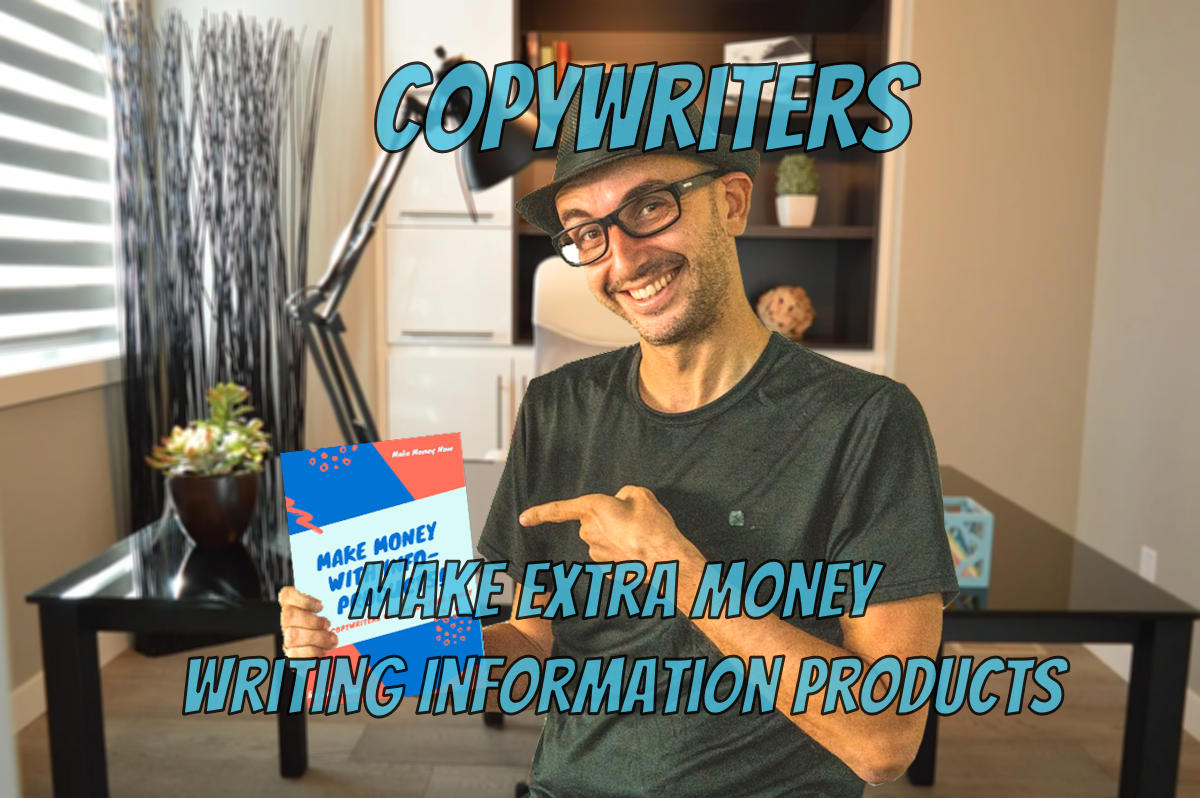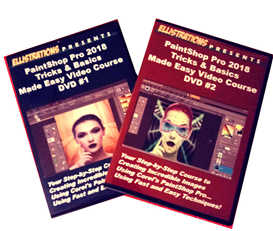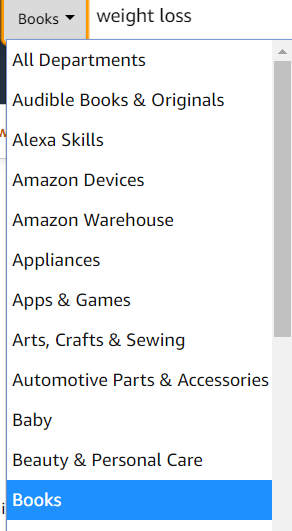Have you ever wondered how a lot of copywriters make extra money?
If you’re a copywriter and not making extra money, you should think about it.
Why?
Because there will be times when your clients will run dry.
And when that happens, you might get depressed and apply for a job at Walmart.
One of the best ways to make extra money with your writing is to create and sell information products.
In this post, I’m going to tell you how you can make your information products and sell them. That way, if you run out of clients or projects you’ll still be able to make money.

What are Information Products?
Before we get into how to make money with info-products let’s make sure you know exactly what they are. Information products are any kind of product (either digital or printed) that delivers and transfers knowledge or information in a way that educates or enriches a person’s life.
As a creator of information products, your task would be to deliver a packaged group of topics and expert knowledge on a subject to a targeted audience.
Of course, you would be using different ways to sell or market your product to a crowd who has a lot of interest in it. (This is why it is usually referred to as “information marketing”.)
There are all kinds of information products writers and copywriters can make, but most of them fall into 5 different categories.
Written
These are products like printed books, manuals, reports, white papers, as well as digitally written products like eBooks, blog posts, social media posts, etc.
Audio
Audio info-products can be sold and marketed both online and offline. These are media types like CDs, mp3 files, podcasts, and if you’re still living in the age of the dinosaurs – audiotapes.
Video
Online video is huge right now, but people like myself still sell video courses on DVD. PowerPoint and Screen capture videos are great to help you explain things too.
Courses
These are packaged educational events that students can work their way through. Usually, different kinds of information formats are combined and delivered to students sequentially. For example, you can have video lessons that have text-based quizzes included with them.
Seminars/Classes
Believe it or not, a class can be an information product. Usually, when a class is given over a weekend or a few days it is called a seminar. A lot of entrepreneurs have made solid money setting up and running seminars while selling their other information products at them.
Selling Courses on DVD is a great way to sell products through eBay and Amazon
Information products can come in a wide variety of formats that you can sell and make money from. Some of the most popular ones are:
- Books
- eBooks
- Manuals
- Newsletters
- Audio CDs
- MP3 Downloads
- DVDs
- Video Downloads
- Whiteboard Explainer Videos
- Live Teleconferences
- Live events
- Consulting Services
- Seminars
- Classes
- Online Courses
- Mastermind Groups
- Hands-on Training Sessions
- Coaching
- Online Educational courses
- Mastermind Groups
- Blogs
- Mini-Blogs
- Video Blogs
- Webinars
- Speeches
As you can see, there are a lot of different ways copywriters can create content that could be packaged and sold to a hungry market. I have personally sold eBooks, packaged DVD courses, blog posts, printed books, manuals, podcasts, and taught all kinds of classes.
Choosing a Niche to Make Extra Money In
If you’re going to make extra money copywriting, you’ll need to have a niche to operate in. Thee are several reasons why you’ll want to do this.
- It’s Much Easier – If you try to market to everyone, you’ll drive yourself crazy because marketing to everyone is marketing to no one. When you know exactly what segment of the market you’re working in, the work is so much easier. Your goals, marketing, products, and every aspect of your business is focused on the right people.
- It’s a Lot Cheaper – If you’re trying to sell to a wide audience, you’ll have to spend quite a lot of money if you decide to advertise. Since you won’t have a well-defined market, you’ll have to cast a wide net to get the customers you’ll need. The wider your scope the more marketing dollars you’ll have to spend.
- Intimacy with Your Audience – When you have a well-defined audience you’ll understand and know exactly what they need and you’ll be able to deliver the kind of information they’re looking for without a lot of guesswork.
There are more reasons why copywriters would want to write within a particular niche, but those are the main ones. Just keep in mind that spreading yourself out into every kind of product will make your information product so much harder.
I’m not saying you shouldn’t try to branch out into other niches or subjects later, but you should start with just one.
Later on, you’ll find that some other subjects and niches fit within the confines of what you’re trying to teach.
For example, I recently wrote a book on blogging and I found that I was talking about creating and using images in my blog posts. So, I created a DVD course on how to use Corel’s PaintShop photo editing software.
Since PaintShop is a tool you can use in blogging, I can seamlessly move into that niche and sell my course.
How to Brainstorm Niches for Information Products
Believe it or not, you’ve got a lot of experience and knowledge between your two ears, and there’s no reason why you shouldn’t make extra money with it. (Usually, most experienced copywriters have quite a few interests and niches they can operate in, so this should be no big deal.)
So, you will need to do this following exercise to take stock of what you know.
I just want to state for the record, that I believe everybody has knowledge that they can use to create an information product. The hard part is extracting that information in an organized manner which will help you create a product you can sell.
So, let’s take stock of what you already know. Take out a pen and a piece of paper (or a word processor) and list answers to the following questions:
- What do I like?
- The kind of education I have.
- What do I do for fun?
- Do I have accomplishments that I can draw on?
- What kinds of hobbies do I have?
- Is there something I’d like to learn in the future?
- What kinds of life experiences do I have?
- If I had all the time in the world to do one thing, what would it be?
Once you answer these eight questions, you’ll have a starting point from which you can draw ideas from. One thing you can learn from doing this kind of exercise is learning which niches you don’t want to be involved with.
As a copywriter, I know that I could make a lot of money writing for the healthcare industry. However, I don’t have any interest in writing for that market.
Even if I was going to make extra money from it, I would hate every minute of it because I can’t think of a more boring subject area than that industry. So, whatever niche you wind up in, make sure that you have an interest in it because you’ll be spending a lot of time writing about it.
Using Amazon to Help You Find a Niche
I like using Amazon as a way to find niches and products to write about.
Why?
For one thing, Amazon has a great search function that can tell you which books are selling the best. As you already know, books are primarily information and entertainment products so you can use Amazon’s search to find bestsellers in almost every category you can think of.
Another thing about Amazon is you can find out what people think about the books they’re buying. Amazon has review sections that tell you exactly what buyers think about the books they’ve bought.
This will help you develop an information product because the commenters will tell you in the reviews what they liked and did not like about the books and subjects they bought.
If you’re trying to find out whether or not your niche or niche products have any legs to stand on, using Amazon is a great way to do that.
Before I show you how to check out niches, I want to tell you something important.
Don’t think for a second you are the first person who thought up the niche or ideas you have for your info-product. Just about every kind of information product idea you can think of has been tried.
And guess what?
It’s good that it’s been thought up and tested because it will be a clear indicator of whether or not you’ll be able to sell your product.
If you start looking around on Amazon or Clickbank and don’t see a product listed that’s similar to an idea you have then chances are there is no market for it. It usually means that someone tried that idea or niche and nobody was interested – so it died.
You want a niche that has proven competitors. Do you want to operate in a heavily saturated market? Probably not, but I would not go into a market that nobody else is in either.
Steps to Using Amazon to Check Niches
Step 1: Navigate to Amazon and type your niche idea into the search window. Let’s pick a popular subject like weight loss and type it in.
Step 2: Before you hit the “Enter” key, scroll down the dropdown menu on the left and click on the word, “books”.
Click on it on Amazon’s search button or hit the “Enter” key on your keyboard.
Step 3: Once you do that, Amazon will whisk you away to its results page where you can look at all of the different books related to that subject.
Step 4: On the left side of the webpage, you’ll see a listing of all the different departments of dieting or weight loss. This is an area where Amazon can help you because it will present you with different ideas of the kinds of weight categories there are.
Step 5: Click on one of the categories. Since the diet and weight loss niche is rather saturated, I looked for a smaller niche within the diet niche. So I clicked on “Special Diet” to see if I could uncover something new or different.
Step 6: I started scrolling down the pages of diet books under the category of special diets and I saw the usual. Keto, low carb, Paleo, etc. However, I did see one that caught my eye – anti-inflammatory diets. The one anti-inflammatory diet book which was listed had 500 reviews on it.
Step 7: Going back up to the top of the page, I typed in an “anti-inflammatory diet and sure enough, I found a whole bunch of books on that subject. Not only were there quite a few books on the subject, but most of the books had hundreds of reviews, which means that there is a hungry audience for that subject.
Step 8: See if you can make your niche even more narrow by adding different dimensions like age, or gender. For example, you can have a weight loss niche on “anti-inflammatory diets for women over 50”.
The Best Information Product to Make
If you do your research, you should know what niche you’ll be working in and what kind of information product you will want to sell, whether it’s an online video course, a newsletter sent through the regular mail, or any of the other kinds of info-products you can sell on the market.
No matter what niche or platform you decide to work in, the best info-product is one you can make the cheapest and sell for the most.
The late copywriting genius, Gary Halbert, once said, “The perfect product is one that can be sold for 10 to 20 times what you paid to have it made and still represent excellent value for the buyer.”
And with companies like Kunaki, you can get professionally made products produced for next to nothing.
I have a 2 DVD set that I make extra money with which has the DVD’s silkscreened, in professionally printed covers, with inserts, all wrapped and ready to go for a mere $2.00 a copy.
My 2-disc series sells for about $30.00 and it only costs $4.00 to get printed and sent on to me. (Of course, I should note that the more copies I purchase in bulk, the cheaper the price on the discs.)
So, if you have a great product and can get it made pretty cheaply, you’ve got a great opportunity to sell with a hefty profit.
Let’s Make it Complicated
But there is another dimension to this that you should consider. If you create a product like an eBook or DVD series and it’s profitable, it won’t be long before you’ll have competitors who will copy what you’re doing and try to beat you in the market.
If you ever watch ABC’s Shark Tank, you’ll see one of the multi-millionaires, Kevin O’Leary, address this issue with budding entrepreneurs all the time. Here’s one of the clips where he graphically tells entrepreneurs how their products have no chance. (The last person he assaults on the video is the one who’s product is easily replicable.)
The best information product you can make is one where the profits are substantial and ARE DIFFICULT TO REPLICATE.
How to Make Your Course Complex
I know creating a complex information product may sound like a difficult concept, but it’s not. All you have to do is combine different formats.
Let me give you an example. Let’s say that you’re trying to create an online course on how to use a graphics editor like Corel’s PaintShop. Instead of just having videos in your course, you could have a combination of things like this:
Video Course + Networking Forum + Audio Files + Guest Artists Giving Lessons + Project Notes + Email Newsletter
If you offer your course with different formats it will make it seem like it’s super complex to replicate, but it’s not. It’s a lot of work, but your competitors might think twice before directly competing with you.
You don’t have to create as big of a product like the one above to make extra money, but you can take a smaller one and make it more complex by just adding a few features.
For example, you could offer a softcover book and include a CD in the back of it.
Several years ago, I bought a softcover book by marketing guru and copywriter, Dan Kennedy. He had a CD attached to it that included even more information.
To be honest, when I bought the book, I read it and never put the CD into my computer. However, when I was at the bookstore looking at it I thought, “Cool! He put a CD in here as a bonus!”
Just by adding an audio CD, Dan Kennedy made his book more valuable than all of the other books on the shelves around his.
Write Your Information Product First
No matter what kind of information product you decide to make, you should at least take the time to get all of your outlines on paper first.
Of course, if you are going to write out an entire eBook you’ll be writing out all of the chapters.
But what if you decide to make a video course? Should you have to write out an entire script for each video?
The answer is yes…sort of.
If you’re going to make a video where you are talking through an entire lesson, I would write it out as a script.
Nothing is lamer than a video where you are stuttering and stammering through your lesson and you don’t know what you want to say.
Here’s a good example of a marketer who knows how to make good copywriting lessons on video. Professor Claire Lynch has hundreds of professionally written videos she uses to promote her copywriting agency Doris & Bertie.
As you can see, Dr, Lynch has a prepared script that she’s using and she’s probably reading it off of a laptop or computer screen using cheap teleprompter software.
However, If you’re making a demonstration video, you may want to write out a basic outline of what you’re trying to teach before you start recording.
I sometimes make explainer videos where all I have is an outline of what I want to say as I’m demonstrating. In a case like this, I ruthlessly edit my video to make it sound as smooth and natural as possible.
Here’s what I mean:
But overall, I try to write out my information products because I want them to be professional.
The 4 Basic Types of Info-Products and How to Write for Them
As I mentioned above, no matter what kind of information product you try to make, you should make sure you write it out as professionally as possible. Just so you know how to write out different kinds of information products, I’ll give you ideas on how you can get started. There are 4 basic kinds of information products copywriters can create.
Written Infoproducts
These include text-based products like eBooks, books, manuals, reports, newsletters, etc. You will want to write out a basic outline so you can work quicker and in a logical order. One way to do that is to use the online tool Evernote. Evernote will help you organize all of your notes, outlines and it even has a Google Chrome extension. One of the cool things about the extension is it will let you take any blog post and turn it into an eBook format without all of the ads and popups on it.
Audio Infoproducts
In this case, we’re talking about CDs, Mp3 files, Podcasts, etc. If you’re going to do something spontaneous like a podcast, then make sure you take the time to write out an outline, and if you have a guest, make sure they are up to speed on it too. The Internet Marketer, Chris Brogan, has a unique way of creating an info product. He’ll do a specialized podcast which is similar to a mini-course and charge only $20 for it. He has a huge mailing list, so if he gets even a small percentage of them to bite on it, he makes quite a bit of money fast. But the main thing to remember is to make sure you take the time to write out your notes. Just like video, if you aren’t using some sort of a guide or script you’ll probably come off as an entrepreneur wannabe.
Video Information Products
These can be DVDs, online videos, webinars, etc. I’ve already covered this venue in the last section of this post, but it needs to be repeated. If you’re going to have a video where you’re talking in front of the camera, write out your script.
If you are going to do something like an explainer video, you should at least have an outline in front of you. You can record your videos several times until you feel you have made them as smooth as you want them. The famous artist, Bob Ross, would practice painting an entire picture right before he would videotape it to make sure he had an idea of what he was going to do or paint. (As a matter of fact, the departed Mr. Ross was one of the best information marketers and teachers there ever was. Bob passed away in 1995, and his classes still run on PBS to this day.)
Live Events
Live events are considered information products and a great way to make extra money too. If you’re showing up with well-written notes, PowerPoint presentations, and notes to hand out to your attendee’s then you’re in the business. I helped a millionaire out with his websites awhile back who had developed a whole slew of information products. His niche was selling courses on how to make money with a network marketing business. He would travel long distances to give seminars and at the end of the seminar, he would sell his courses on how to make megabucks in multilevel and network marketing. Copywriters and who become information marketers can not only make money giving the classes, but they can also sell courses right after the classes and make money that way too.
Concluding Thoughts on How to Make Extra Money
Yes, copywriters can make extra money writing and creating information products. However, the process of researching, learning, writing, and marketing your product takes work and time.
Also, I want to mention that you probably won’t make a big splash right off the bat with your niche or products. It might take you several attempts before you get your product and marketing just right. Along the way, you will make extra money selling your information products and you’ll get pumped up to try to make and sell more. It’s an exhilarating feeling when you’re selling eBooks for $30 a pop and it only costs you a little time to make it.
However, the initial surge of orders may drop off suddenly and you may wonder where you went wrong. The best advice I can give you is don’t get discouraged and don’t give up.
This is the way most businesses start – it takes a lot of trial and error before they hit the motherlode.
An Extra Tip
I suggest that you read biographies or watch documentaries about successful people like Elon Musk, Henry Ford, Thomas Edison, Martha Stewart, or Walt Disney. You will find that all of these people had to battle their way through a lot of obstacles to keep their businesses in place.
There is one big difference between these entrepreneurs and a person who is starting an information marketing business. An infopreneur doesn’t have the massive financial risk and the startup cost is so low, even a child could start one. So if you fail, get back up, dust yourself off, and start over.
Please let me know if you were inspired by this post; I hope you will try to create your own information products. You can leave your comments and responses in the comment section below.






